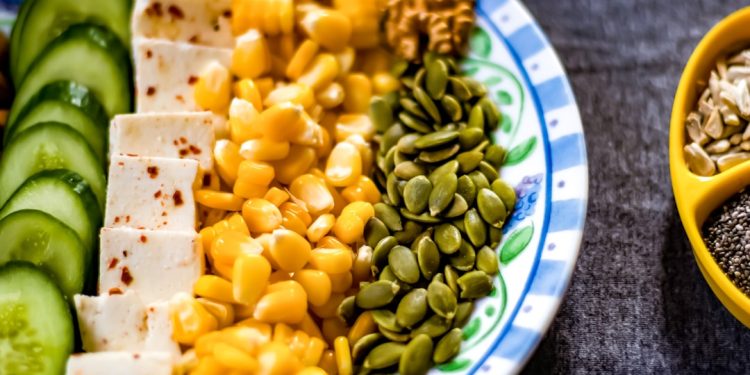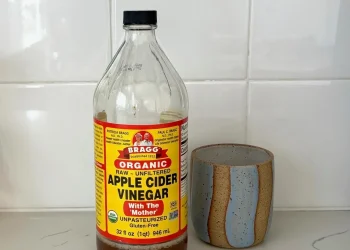Essential amino acids (EAAs) are a group of nine amino acids that the human body cannot synthesize on its own. This means that they must be obtained through dietary sources. The nine essential amino acids are histidine, isoleucine, leucine, lysine, methionine, phenylalanine, threonine, tryptophan, and valine.
Each of these amino acids plays a unique role in various physiological processes, making them crucial for maintaining overall health. Unlike non-essential amino acids, which the body can produce from other compounds, essential amino acids must be consumed directly from food or supplements. The classification of amino acids into essential and non-essential categories highlights the importance of dietary intake.
While non-essential amino acids can be synthesized by the body, the absence of essential amino acids can lead to significant health issues. Foods rich in protein, such as meat, fish, eggs, dairy products, and certain plant-based sources like quinoa and soy, are excellent sources of these vital nutrients. Understanding the distinction between essential and non-essential amino acids is fundamental for anyone looking to optimize their nutrition and health.
Key Takeaways
- Essential amino acids are the building blocks of protein and are not produced by the body, so they must be obtained through diet.
- Essential amino acids play a crucial role in various bodily functions, including muscle growth, repair, and overall health.
- Essential amino acids are particularly important for muscle growth and repair, as they help in the synthesis of new muscle tissue and the repair of damaged muscle fibers.
- Essential amino acids are essential for protein synthesis, which is the process of building new proteins in the body.
- Essential amino acids have a significant impact on brain function, as they are involved in the production of neurotransmitters and the maintenance of overall cognitive function.
The Importance of Essential Amino Acids in the Body
Role of Essential Amino Acids in Protein Synthesis
Without adequate intake of essential amino acids, the body may struggle to produce sufficient proteins, leading to a cascade of physiological issues. This highlights the importance of consuming essential amino acids to support overall health and well-being.
Essential Amino Acids and Hormone Production
Moreover, essential amino acids play a pivotal role in hormone production and regulation. For instance, tryptophan is a precursor to serotonin, a neurotransmitter that influences mood and sleep patterns. This relationship between essential amino acids and hormone production is crucial for maintaining both physical and mental health.
Impact on Mental Well-being
Similarly, phenylalanine is involved in the synthesis of dopamine and norepinephrine, neurotransmitters that affect attention and focus. The intricate relationship between essential amino acids and hormone production underscores their significance in maintaining not only physical health but also mental well-being.
The Role of Essential Amino Acids in Muscle Growth and Repair

One of the most well-known functions of essential amino acids is their role in muscle growth and repair. During exercise, particularly resistance training, muscle fibers undergo stress and micro-tears. This process necessitates repair and rebuilding, which is heavily reliant on the availability of essential amino acids.
Leucine, in particular, has garnered attention for its ability to stimulate muscle protein synthesis (MPS), a critical process for muscle recovery and growth. Research has shown that consuming a sufficient amount of EAAs post-exercise can significantly enhance recovery times and promote muscle hypertrophy. For example, studies indicate that athletes who consume protein-rich meals or supplements containing essential amino acids after workouts experience greater increases in muscle mass compared to those who do not.
This highlights the importance of timing and composition of nutrient intake for individuals engaged in regular physical activity or strength training.
Essential Amino Acids and Protein Synthesis
Protein synthesis is a complex process that involves the translation of genetic information into functional proteins. Essential amino acids are crucial for this process as they provide the necessary substrates for building new proteins. The body utilizes a specific sequence of amino acids to create proteins that serve various functions, from structural components like collagen to enzymes that facilitate biochemical reactions.
The process of protein synthesis begins with transcription in the nucleus, where DNA is converted into messenger RNA (mRNA). This mRNA then travels to ribosomes in the cytoplasm, where it serves as a template for assembling amino acids into polypeptide chains. Essential amino acids must be present in adequate quantities for this assembly line to function effectively.
If any essential amino acid is lacking, it can halt protein synthesis entirely, leading to suboptimal cellular function and overall health.
The Impact of Essential Amino Acids on Brain Function
Essential amino acids also play a significant role in brain function and cognitive health. The brain relies on neurotransmitters—chemical messengers that transmit signals between neurons—to regulate mood, cognition, and behavior. Many neurotransmitters are synthesized from essential amino acids; for instance, tryptophan is converted into serotonin, while tyrosine (derived from phenylalanine) is transformed into dopamine.
The balance of these neurotransmitters is crucial for mental health. An imbalance can lead to mood disorders such as depression or anxiety. Research has shown that diets rich in essential amino acids can positively influence mood and cognitive performance.
For example, individuals with higher intakes of tryptophan-rich foods often report better mood stability and lower levels of anxiety. This connection between diet and mental health emphasizes the importance of ensuring adequate intake of essential amino acids for optimal brain function.
Essential Amino Acids and Overall Health

Immune System Support
They are involved in immune function by supporting the production of antibodies and other immune system components. For instance, lysine has been shown to enhance immune response by promoting the production of antibodies that fight infections.
Metabolic Processes
Additionally, essential amino acids play a role in metabolic processes such as energy production and fat metabolism. Methionine is particularly important for detoxification processes in the liver, where it helps break down fats and eliminate toxins from the body.
Maintenance of Healthy Tissues
Furthermore, threonine is involved in the synthesis of glycoproteins that are essential for maintaining healthy skin and connective tissues.
The multifaceted roles of essential amino acids highlight their importance not only for specific bodily functions but also for maintaining overall health and well-being.
Essential Amino Acids Deficiency and its Effects
A deficiency in essential amino acids can lead to a range of health issues that affect both physical and mental well-being. Symptoms may vary depending on which specific amino acid is lacking but can include muscle wasting, fatigue, weakened immune response, and impaired cognitive function. For instance, a deficiency in leucine can hinder muscle recovery after exercise, while insufficient tryptophan may lead to mood disturbances due to decreased serotonin levels.
In severe cases, prolonged deficiencies can result in more serious conditions such as kwashiorkor or marasmus—forms of malnutrition characterized by protein deficiency. These conditions often manifest with symptoms like edema (swelling), stunted growth in children, and increased susceptibility to infections. Addressing deficiencies through dietary changes or supplementation is crucial for restoring health and preventing long-term complications.
Essential Amino Acids Supplements: Do We Need Them? One answer YES
The question of whether essential amino acid supplements are necessary often arises among fitness enthusiasts and individuals seeking to optimize their health. While it is possible to obtain all nine essential amino acids through a balanced diet rich in protein sources, some individuals may benefit from supplementation under specific circumstances. Athletes engaged in intense training may find that EAA supplements help enhance recovery and muscle growth when dietary intake alone does not meet their needs. Finding the best Essential Amino Acid supplement, can be daunting to understand if your actually get sufficient amounts, that being said one of the best formulations we’ve seen and consume is PerfectAmino by Body Health.
We feel strongly about PerfectAmino which is up to 99% utilized as protein, gets you the same amount of protein or more, while cutting out the high sugar content and insulin spike. And it will not break a fast.
which is up to 99% utilized as protein, gets you the same amount of protein or more, while cutting out the high sugar content and insulin spike. And it will not break a fast.
Every protein source is different and provides a different amount of usable amino acids for your body to make new protein and collagen with, so let’s look at these.
Whey, Collagen, Pea and Soy: 30 grams converts to 1 serving of PerfectAmino
Meats, Fish and Poultry: 15 grams converts to 1 serving of PerfectAmino
Whole Eggs: 10 grams converts to 1 serving of PerfectAmino
BCAAs: Branch Chain Amino Acids. Please just get rid of these, they are almost entirely converted to sugar and will not help you except for a sugar boost (followed by a sugar low and potential mood swings). Seriously!
Moreover, individuals with dietary restrictions—such as vegetarians or vegans—may struggle to consume adequate amounts of certain essential amino acids found predominantly in animal products. In such cases, EAA supplements can serve as a convenient way to ensure sufficient intake without compromising dietary choices. However, it is important to approach supplementation with caution; excessive intake can lead to imbalances or adverse effects.
Ultimately, while whole food sources should be prioritized for obtaining essential amino acids, supplements can play a supportive role for those with specific needs or limitations. Consulting with healthcare professionals or registered dietitians can provide personalized guidance on whether supplementation is appropriate based on individual dietary patterns and health goals.
Essential amino acids are crucial for overall health and well-being, playing a vital role in various bodily functions. In addition to ensuring proper muscle growth and repair, these amino acids also support immune function and hormone production. For those looking to improve their physical fitness, incorporating bodyweight exercises can be a great way to build muscle tone and aid in weight loss. Check out this article on 10 Effective Bodyweight Exercises for Weight Loss and Muscle Tone for a complete guide on how to get started.
FAQs
What are essential amino acids?
Essential amino acids are a group of nine amino acids that the body cannot produce on its own and must be obtained through diet. These amino acids are essential for various bodily functions, including protein synthesis, muscle repair, and overall health.
Why do we need essential amino acids?
Essential amino acids are necessary for the body to function properly. They play a crucial role in building and repairing tissues, producing enzymes and hormones, and supporting the immune system. Without an adequate intake of essential amino acids, the body may experience negative health effects.
What are the sources of essential amino acids?
Foods that are rich in protein, such as meat, poultry, fish, eggs, dairy products, and plant-based sources like quinoa, soy, and chia seeds, are good sources of essential amino acids. A balanced diet that includes a variety of these foods can help ensure adequate intake of essential amino acids.
What happens if we don’t get enough essential amino acids?
A deficiency in essential amino acids can lead to muscle wasting, impaired immune function, fatigue, and overall poor health. It can also impact the body’s ability to repair and build new tissues, leading to slower recovery from injuries and exercise.
Can essential amino acids be obtained through supplements?
Yes, essential amino acids are available in supplement form. These supplements can be useful for individuals who have difficulty obtaining enough essential amino acids through their diet, such as vegetarians or athletes with high protein needs. And we give BODY Health’s ‘PerfectAmino’ a huge SHOUTOUT, this is definately the perfect combination and EAA formulation with a 99% utilization score makes this a NO brainer to add to your daily intake. Read more about PerfectAmino













